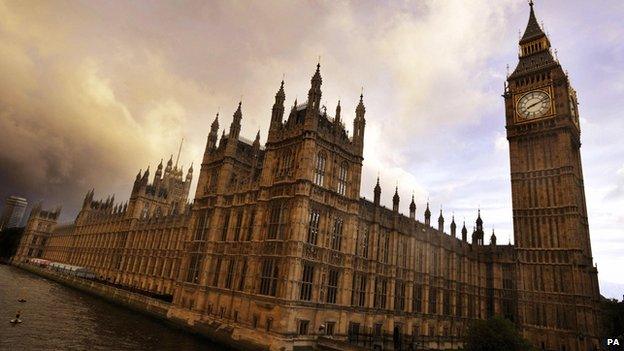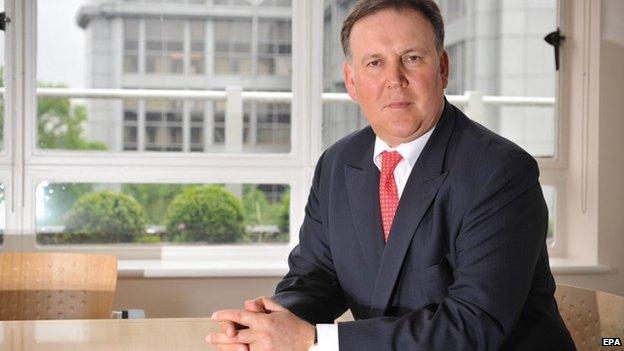Public sceptical on party funding, standards chief says
- Published

There is "large-scale public scepticism" about the way political parties are funded, the chairman of the Committee on Standards in Public Life has said.
Lord Bew said Labour and Conservative dissent meant there had been "major difficulty" to reforming the system.
And he said parties should have agreed to release more details about financial affairs of donors receiving peerages.
Party donations for the final quarter of 2014 will be published later.
BBC political correspondent Ben Wright said today's figures were likely to show the Tories reliant on wealthy individuals and Labour dependent on trade unions.
'Need for progress'
Ahead of the publication, Lord Bew told the BBC there was a need for progress to be made on funding after the 7 May election.
But he conceded state funding was opposed by a large majority of voters.
He added: "It's a genuinely difficult issue for serious people."
Meanwhile, the Electoral Reform Society said party funding was in "urgent need" of reform and Parliament must tackle the issue "or else the scandals will just keep coming".
The organisation said the "long line of party funding crises" showed the issue was too pressing to be put off.
'Funding scandals'
Publishing its report "Deal or No Deal: How to put an end to party funding scandals" it added: "Whenever party funding scandals hit the news these days, the public aren't surprised - in fact, they have grown to expect it. Such is the scale of disenchantment with the major parties."
The report recommends capping donations to halt the "big-donor" culture; introducing an increased element of public funding for parties, plus capping campaign spending.
A poll accompanying the report suggests three quarters (75%) of the public believe "big donors have too much influence on political parties".
It also indicates two thirds (65%) think party donors could effectively buy honours.
- Published12 February 2015

- Published29 July 2014

- Published25 July 2013
